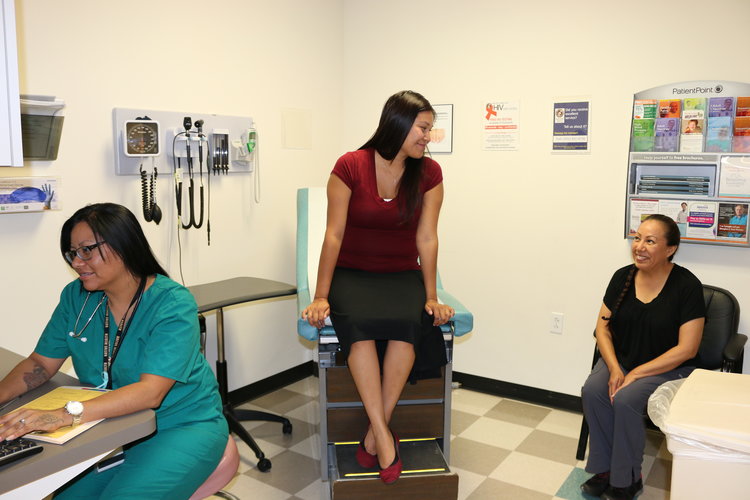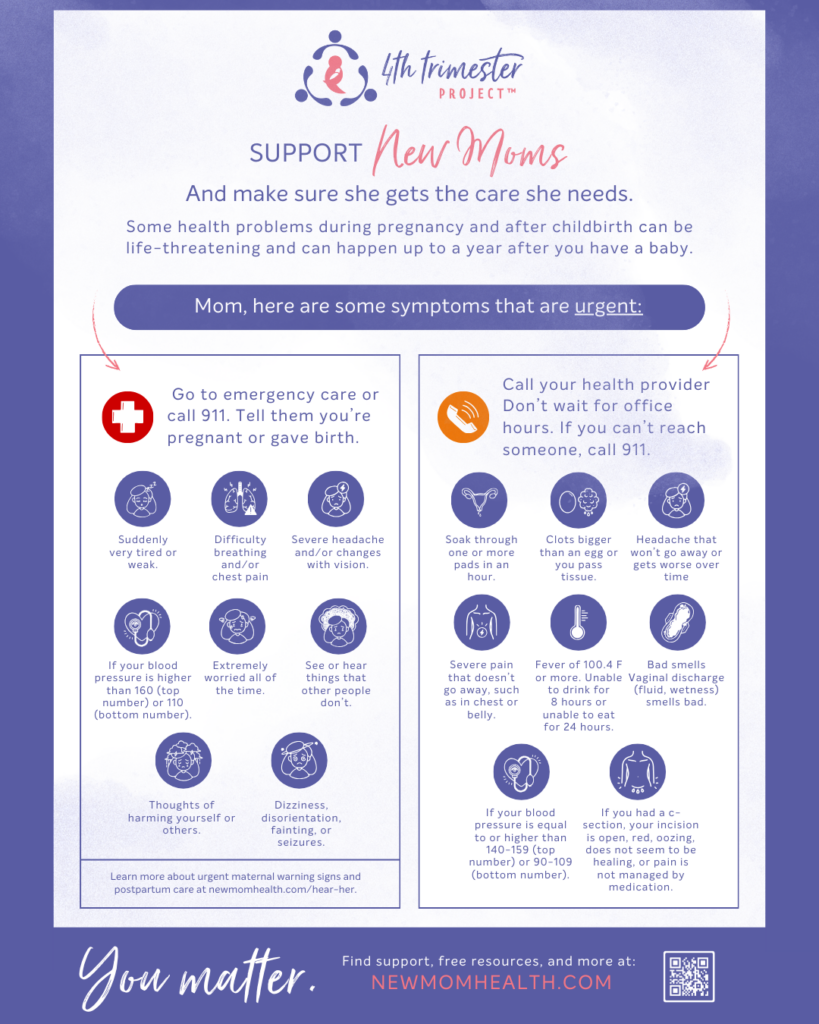
Traditionally, the postpartum visit takes place 6-8 weeks after the birth of a baby. Given all that happens to women’s bodies in the early weeks after giving birth, many women find that visit to be too little and too late. There are also many women who never receive a postpartum visit! The American College of OB/GYNs (ACOG) is trying to change this by setting new best practice standards. ACOG recommends that health providers contact new mothers within the first three weeks after childbirth. They also recommend that the timing and number of postpartum visits should be fit to what the mother needs. If a woman has had a high risk pregnancy, she should be seen sooner. This is a great direction! We also know that it will take time for providers to change the way they practice. Now you have this information so you can advocate for yourself and get the care you need.
The postpartum visit is important. Many changes have happened to your body, health, and life since you’ve last seen your provider. In some health care systems, information about your labor and delivery and baby’s health are quickly linked to your record so your provider can be up-to-date quickly. In other systems this may be slower. So your provider might not know how your delivery went and how your baby is doing. This can be extra hard for women whose babies were born early or with problems. If it seems your provider doesn’t have the most current information, please share it with them. They want to be helpful and appreciate all the information you can share.
Here are tips to help you use this time with your provider to honestly talk about what matters to you.
How can I prepare for my appointments?
- Make the visit yours! – Ever walk into your appointment and forget all of your questions? You’re not alone. Write down your questions and symptoms ahead of time so you can make sure you’re getting the information you need.
- Come prepared – Bring your paperwork for leave from work or school (or insurance – whatever you might need) so it can be signed while you are at your appointment.
- If there is something you need to talk about, but you feel embarrassed bringing it up, let them know. Hopefully, this will help them listen more carefully. Don’t be afraid to bring things up! Providers have seen a lot and it is their job to take good care of you.
- Speak your mind – It is important that you are able to be open and honest with your health care provider. It is great if they come up with a plan, but if that plan does not fit into your lifestyle or budget, then it won’t work for you. It is ok to tell your provider if you are not onboard with their suggestions and need some different ideas. After all, you need to follow a plan for it to work.
- Ask them to repeat it – If your provider says something that you don’t understand or that upsets you, it is ok to stop and ask them to explain it another way until it makes sense.
- Prioritize – Many health clinics are busy. Make sure you ask your most important questions first so that you don’t run out of time. Postpartum visits are often very short – which is unfortunate. Until we can change the system, women need to be assertive to get what they need from the time they have.
- Write it down – Your provider might cover a lot of information during an appointment and it can be hard to keep it straight in your head. If you write down the important points, it will be easier to remember later.
- Helping hands – See if a family member, friend, or your partner can watch your baby and older kids, or come with you to the appointment. If someone can help with your baby, you’ll be able to pay close attention at your appointment.
- Ask to talk to someone you trust – Sometimes labor and delivery experiences bring women closer to their providers. Other times there may be an interruption of trust. While it is not always possible to see a specific provider for a visit, if you don’t want to see someone in particular OR do really want to see someone, please ask.
Resources to Explore:
- One common topic brought up at a postpartum visit is birth control. You may want to look over this booklet to prepare for that conversation Birth Control After Baby or Birth Control After Baby in Spanish














